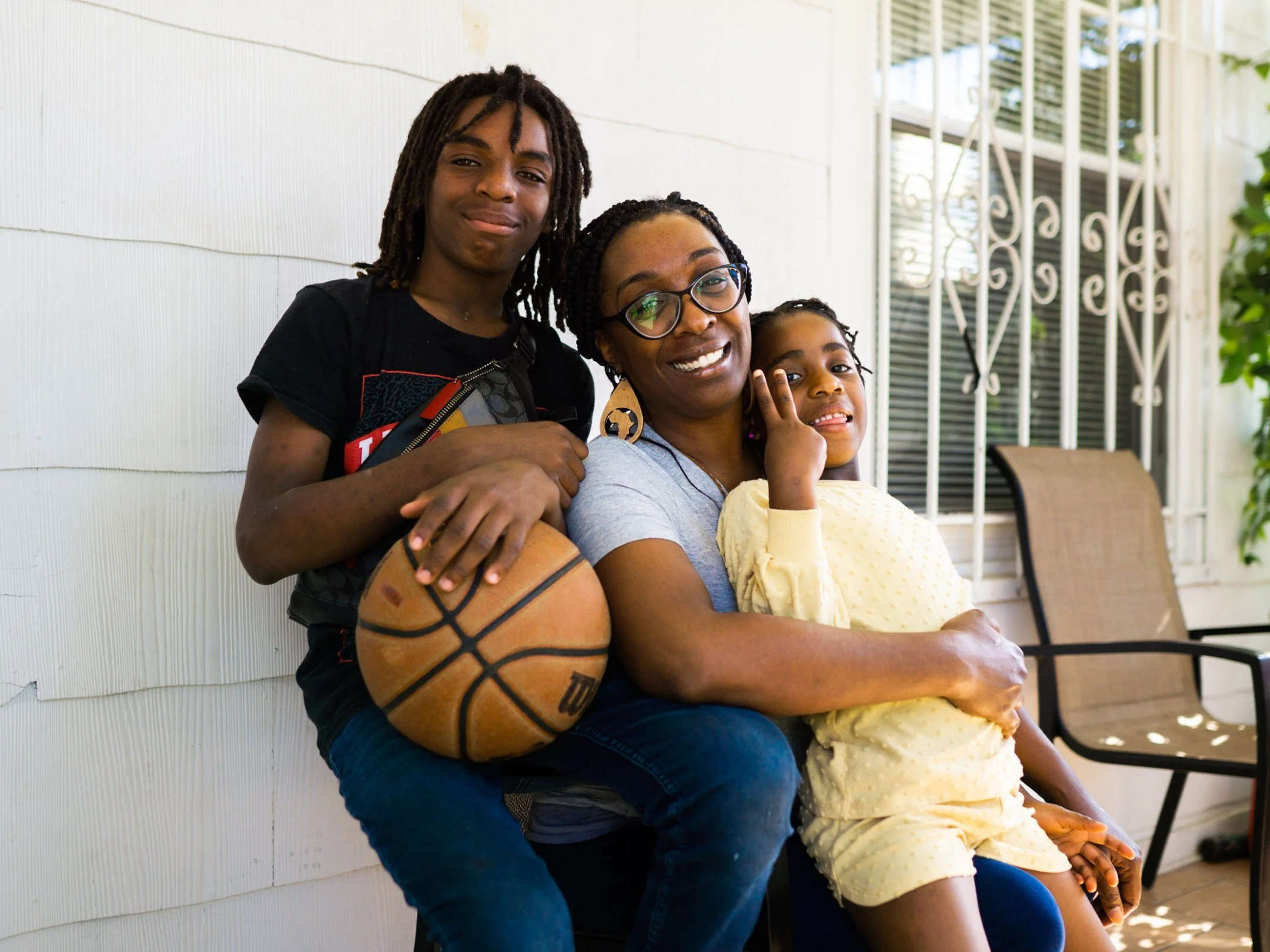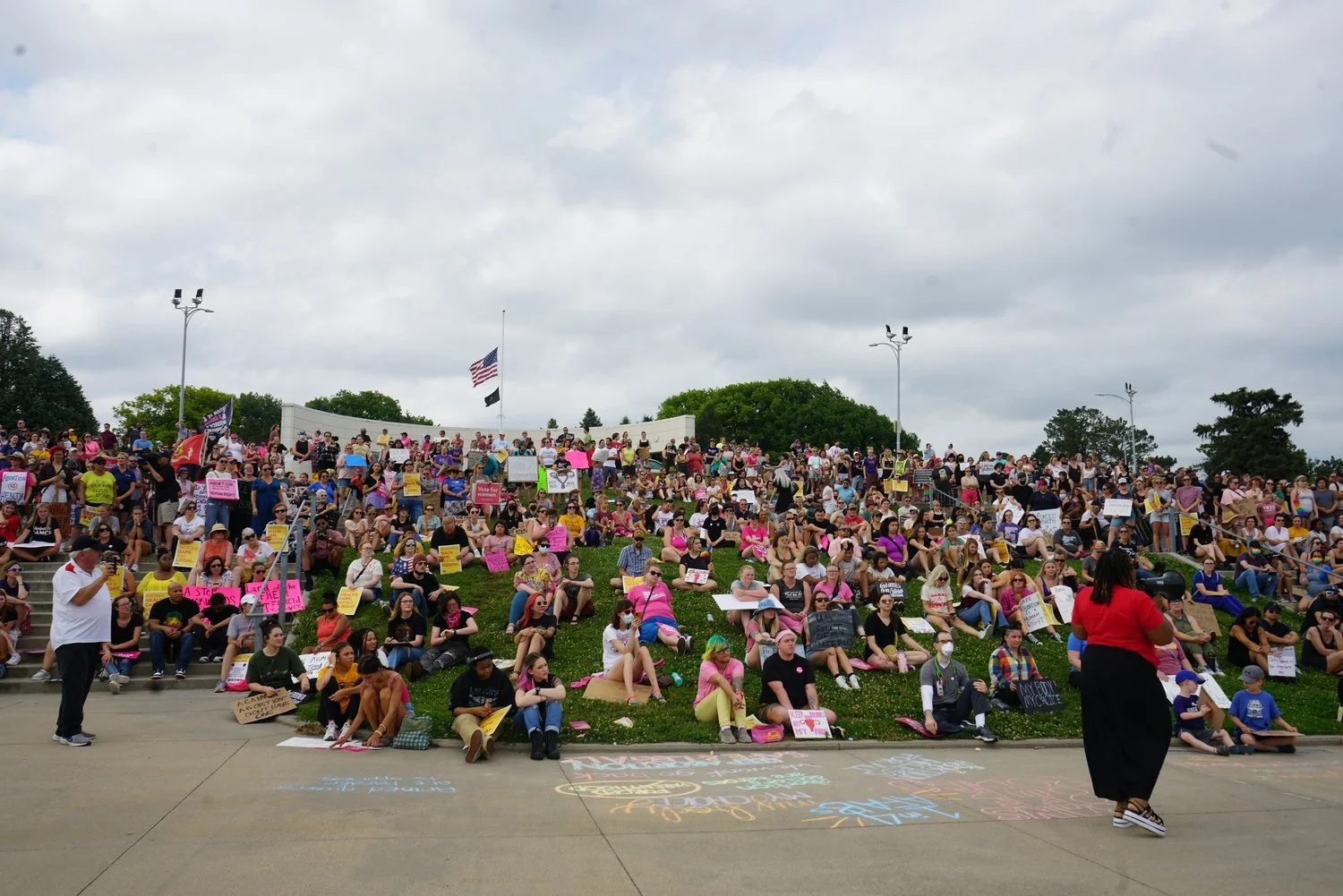Black Parents of Autistic Children Create Resources for Each Other
Image credit: Lyndsay Dunn NOISE
By Elle Love
Elle Love is a freelance contributor to NOISE who graduated from Uno with a b.s. in journalism and media communications. As a black woman with autism, elle brings a knowledgeable perspective to the issues facing black people diagnosed with autism in omaha.
Dashel Lee-Titsworth learned that her son, Bramir, was diagnosed with Autism Spectrum Disorder (ASD) at seven years of age after his second evaluation in March of this year. Lee-Titsworth is a graduate student at Grace University preparing to teach 7th and 8th graders.
“I worked with autistic children before, but my son was different compared to the other students that I worked with, so I wasn’t sure if he was actually autistic,” Lee-Titsworth said.
Dashel Lee-Titsworth’s son Bramir.
Lee-Titsworth said some of the behaviors she noticed in her son included his preference for long-sleeved shirts, having a daily routine, being tardy on school days, social challenges, and communicating emotions. Despite these challenges, Lee said Bramir does well in school, even playing the violin.
“He exceeds in school. He has all As. But when it comes to things like learning how to tie his shoes, those kind of things are incredibly challenging for him. But if it's like a math problem, then he is able to answer the math problem right away.”
Lee-Titsworth was knowledgeable about a few aspects of autism including sensory sensitivities, but she said the challenging part of learning about her son’s autism was understanding his needs and advocating for them to his educators.
“I learned about patience with him. I learned about structure. Of course we can’t be late anywhere so it has been sorta challenging,” Lee-Titsworth said. She sees her role as advocating for her son when there are needs he can’t express.
Parents helping Parents with Autistic Kids
In addition to her pediatrician, Lee reached out to other Black mothers with autistic children for support and information, including Misti Mitchell who founded an organization supporting Black girls with intellectual and physical disabilities after her daughter Kynlee was diagnosed with autism.
Mitchell’s organization, Wonderfully Made USA, was created to empower Black autistic girls and to connect parents with each other to build a system of mutual support.
After moving to Omaha in 2016 when her daughter Kynlee was in fifth grade, Mitchell noticed her daughter received good grades in class but needed additional help to understand the classwork.
“They were just passing her along. I knew they were giving her grades that reflected that she was doing good but then we would come home, she would spend like two hours on a math problem and I’m like, ‘It’s impossible that she has a B in math if she spent two hours on simply one problem.’ Mitchell discovered Phoenix Academy, a private school in Omaha, which she said is a good resource for kids with learning differences.
Mitchell said the process of being her daughter’s advocate in her school requires attending Individualized Education Program (IEP) meetings with teachers, counselors, and other school personnel to vocalize her daughter’s needs. Mitchell said she has to be clear on how school officials can work with Kynlee.
“I’m in tune with Kynlee’s strengths and the things she needs, so to hear them say certain things, then I will be like ‘OK, no that’s not right.’ Because this is how we work on it at home, or this is what she does and this is how she is. It’s almost like some of them wanted her to be in this space of helplessness,” Mitchell said. Other teachers praised how Kynlee performed in class, so it has been difficult for Mitchell to reconcile the differing opinions about her daughter.
Mitchell said that she learned to be more calm and patient working with school personnel but also to be assertive in asking for accommodations her daughter needed in school and other public settings.
Mitchell said Black parents with autistic kids are constantly searching to find resources to best support and encourage their children in an academic setting.
Mitchell said Lee-Titsworth and others have asked her for information on their children’s possible autistic diagnosis because she is on the University of Nebraska Medical Center (UNMC) Munroe-Meyer board, an organization that has been providing services for people with intellectual and developmental disabilities since 1919. Mitchell is able to advise Black parents about resources while they wait for a doctor’s diagnosis.
“We aren’t doctors, but to have a support group while waiting to me is so important, and I think that’s lacking.
“It makes that time [waiting for diagnosis] feel shorter. I have five to six women’s numbers that I can just text or call to be supported or to have lunch with or coffee with.” Mitchell said.
There are resources out there but they want to put you in their resources that aren’t built for you anyway. As Black people, we go through different things, so I feel like the resources that should be mentioned and given, aren’t given,” Mitchell said.
A Snapshot of Autism in the United States
The Center for Disease Control Center (CDC) Autism and Developmental Disabilities Monitoring (ADDM) Network created a snapshot of Autism Spectrum Disorder in 11 states in 2018 including Arizona, Arkansas, California, Georgia, Maryland, Minnesota, Missouri, New Jersey, Tennessee, Utah, and Wisconsin. Nebraska was not one of the states.
The report states “1 in 44 (2.3%) 8-year-old children were identified with ASD in 2018, based on tracking within the 11 communities in the United States. The estimated percentage of children identified with ASD is higher than in previous reports, though participating communities have changed over time. These findings indicate there are many children with ASD who need services and support now and as they grow into adolescence and adulthood.”
Mitchell believes research on autism in Nebraska should break down data by gender and race, in addition to county-level data, in order to provide the most accurate picture of autism in the state.
She said many Black children may be misdiagnosed or diagnosed when they are older. “You have this behavioral IEP when the child really is autistic,” Mitchell said. “They wonder why they get suspensions and all of these types of things. But they’re not getting what they need.”
April is Autism Acceptance Month, but awareness must come before acceptance. Mitchell aims to educate the Black and Brown community about autism— explaining what a diagnosis means, sharing research and personal stories of families with autistic kids— to help parents get an earlier and more accurate diagnosis for their children.
“Kids can get tested as early as 18 months and I think that’s something a lot of people don’t know. ”
In the Nebraska Legislature, LB997, introduced by Sen. Jen Day in 2022, would have added an autism screening to Nebraska's existing physical and vision examinations that are performed before a child enrolls in school. The bill never made it out of committee.
“Kids can get tested as early as 18 months and I think that’s something a lot of people don’t know. Our kids shouldn't be out there getting diagnosed between [ages] 5 - 12,” Mitchell said. “There are some people who are adults in their 20s who are like, ‘I didn't know. I just knew I was different and I didn’t get a diagnosis ‘til later.’ Those types of things shouldn’t be happening,” she said.














